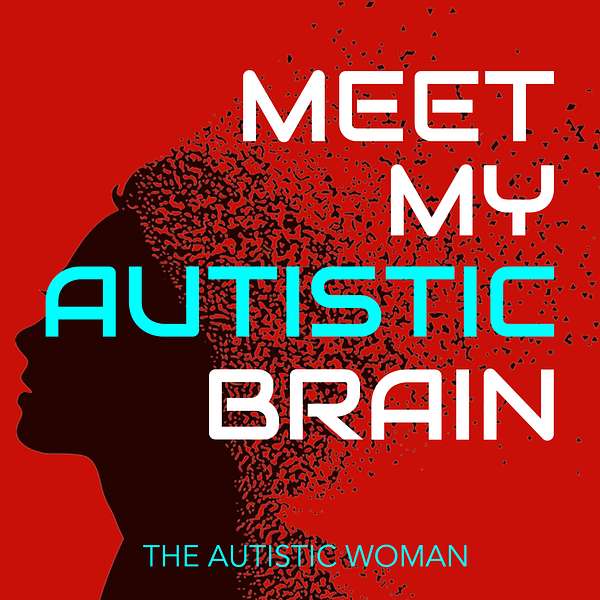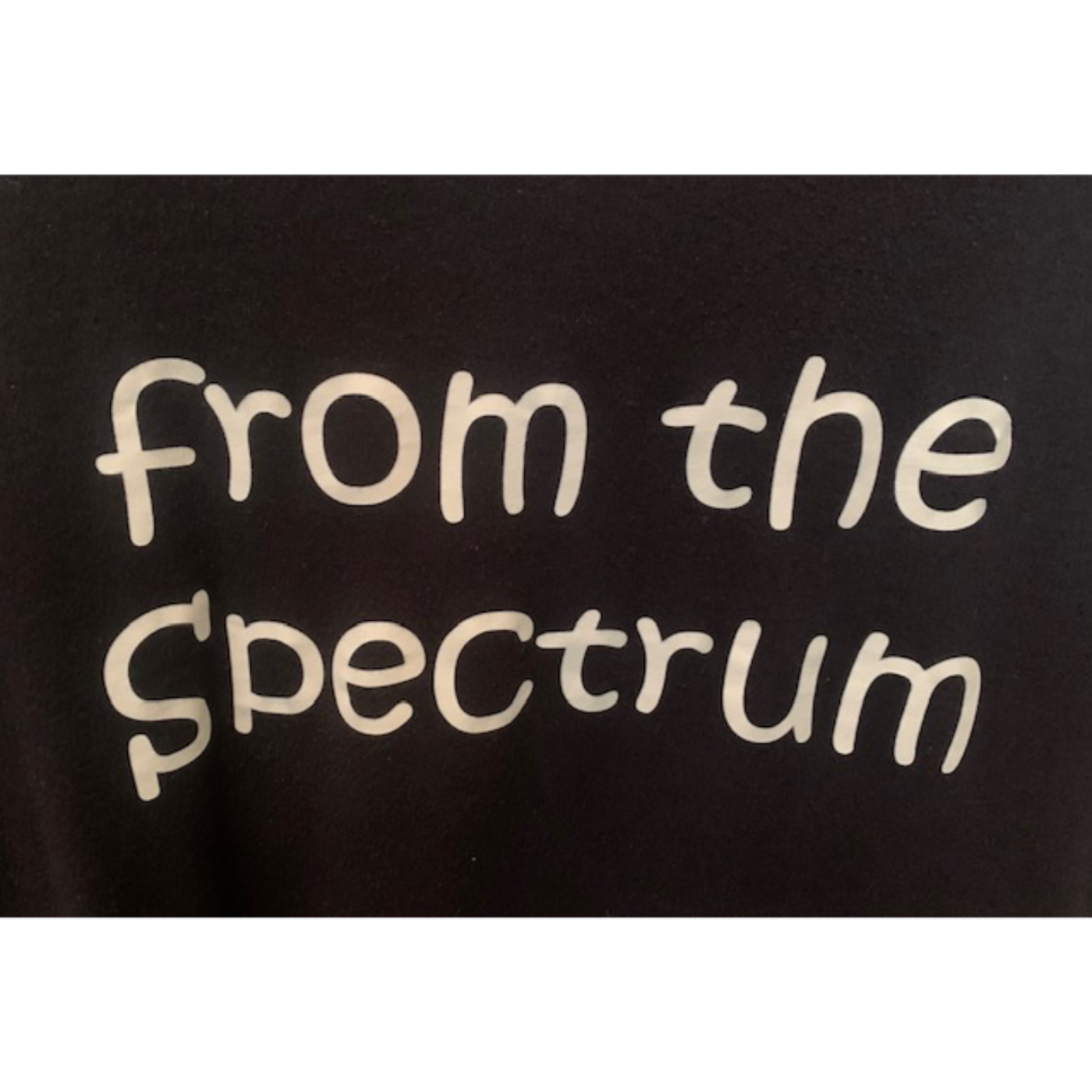
Meet My Autistic Brain
What is it like to find out late in life that you are autistic? The Autistic Woman talks about life experiences and how autistic traits affect her as an adult. You'll hear personal stories, opinions about research and the importance of autistic voices. Includes some fun stuff too and interviews of autistic guests! This podcast is primarily for adult autistics and their family and friends. It's one of the top 0.5% most popular shows globally as ranked by Listen Score with more than 1,000,000 downloads.
Meet My Autistic Brain
Executive and Cognitive Function Part 2
When you have trouble getting started it may be due to executive functioning. Autistics have cognitive strengths as well. Listen and learn in Part 2.
Tell your friends and family about this podcast. Let’s spread the word about what it’s like to be autistic.
Please take a moment and rate/review the podcast. It takes seconds to rate it and just a minute to review it. By doing so you help make this content available to more autistics.
Sunsama free trial: https://try.sunsama.com/xi4blkokndgk
RATED IN THE TOP 0.5% GLOBALLY with more than 1,000,000 downloads!
If you are an autistic person who has written a book about autism or if you have a guest suggestion email me at info@theautisticwoman.com.
Instagram
Ko-fi, PayPal, Patreon
Linktree
Email: info@theautisticwoman.com
Website
Initiation of Actions and Tasks - Ability to motivate ourselves to begin tasks. I struggle to start things like laundry, cleaning, getting ready for bed. Sometimes it just seems too boring.
Sounds familiar, right? I think most autistics struggle with it every day.
It’s the reason that transitioning from one activity to another is challenging.
It affects things we love doing, too, like our special interests. Learn more from episode on inertia.
——-
Self-Monitoring - Ability to have self-awareness of how one is doing in the moment to make adjustments of actions/behaviors to the current situation.
This seems to come up most often in social communication. It’s that time when we blurted something out without thinking. Or when we didn’t notice that the person we’re talking to had lost interest in what we were saying.
—-
Cognitive Flexibility - Ability to think about different ways to solve problems, adjust to new situations, learn from mistakes, cope with routine changes, try new things, switch from task to another, and learn. It’s our ability to change our mindset when the rules of the world around us change, to shift between mental processes.
The world is constantly changing and I find autistics are particularly good at one type of cognitive flexibility and that is the ability to see more than one side of a situation. We can see the arguments for and against and many things in between. I don’t know why this is true. I’ve heard other autistics talk about it.
I’m not saying we change our minds, but we do at least consider a different opinion.
The autistic person who wears the same type of shirt every day yet feels uncomfortable when plans change can, at the same time be flexible with how they think about and perceive the world.
Cognitive function is controlled by executive function. It includes a variety of mental processes such as
- perception,
- attention,
- memory,
- decision making, and
- language comprehension.
Cognitive function is the mental process that helps us understand sensory input, our experiences and our thoughts. It affects our reactions, perceptions, information storage and retrieval, decision-making and behavior.
Some cognitive strengths include:
- attention to detail
- memorizing vast amounts of information about a certain subject I.e. special interest (is this working memory?)
- Awareness of sensory input. Most autistics understand that sensory input affects us, we can’t help but do so.
Some research shows that cognitive skills can be improved. Studies show that autistics perform better in an environment that takes learning styles into account. For example, if someone is a visual thinker they may be more likely to learn from visual rather than verbal information.
I find that I learn better when information is presented visually. When I actually see it done. Show me how to use a drill don’t tell me.
At times I also listen to something or read about it in order to fully understand and remember. I now wonder if that’s at least in part because I have to be able to translate my visual knowledge into verbal information in order to navigate the world.
Executive and cognitive function is important on the job and fall into 3 general categories:
Technical, Analytical Skills: These are based on the type of business and a person’s experience and skill.
Analytical skill is the ability to use data to develop creative, practical solutions. Autistics generally pretty good at analysis, in fact, we often are told that we “overanalyze.”
Technical and analytical skills include:
- Selective Attention
- Focusing
- Working memory
- Behavior inhibition
- Workload capacity
- Cognitive flexibility
- Logical reasoning
Metacognitive skills: Generally these encompass strategic planning, decision-making, learning flexibility, self-awareness (recognizing your strong and weak points); and an ability to focus on intrinsic motivational drives.
Metacognitive skills also include:
- Strategy
- Problem solving
- Learning flexibility
- Creativity
Relational skills:
Relational skills relate to social interactions and interpersonal relationships. For me personally, this is the most difficult due to the culture of the workplace. The fact that technical skill, analytical skill and performance take a back seat to socializing affects how people judge my work.
To thrive in a non-autistic world, cognitive skills are needed in order to be independent in all areas of our lives.
These things can affect executive functioning:
Alertness
•Sleep
•Diet & consistent meal schedule
•Energy level
•Learning style
• Interest
•Attention span & level of engagement
- Co-existing conditions
- Receptiveness to feedback
-I used to be less than receptive to feedback but then again it was typically worded like “you’re too shy. You overthink, you’re too sensitive…” Who wants to hear that? Often?
I appreciate meaningful feedback. I don’t know your expectations if you don’t tell me. I am receptive to feedback when it’s delivered respectfully.
I’ve heard that executive function deficits in autism can be described as a disorder of performance, not skill. I like that except that it still defines performance according to non-autistic standards. It makes the point though that autistics don’t lack the skill, talent or intelligence to perform, rather that we have a brain that is differently wired.
This is not inclusive and there are other behaviors, some that are unique to you, that are regulated by the frontal lobe. We know that many parts of the brain work together and that these functions overlap.
When you don’t seem to have the energy to start something it’s your executive function that is affecting you. If you struggle to learn new things, that’s executive function. If you don’t understand instructions, well, you get the idea.
I’m on Twitter @anautisticwoman or you can email me at info@theatusiticwoman.com. Make sure you share this podcast with your friends and family. Let’s help people understand what it’s like to be autistic.
Don’t hesitate to message me or send me an email. You can support the show on Patreon.
Podcasts we love
Check out these other fine podcasts recommended by us, not an algorithm.

Atypical: The Podcast
The Atypical Crew

